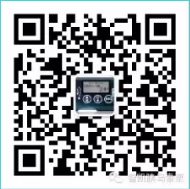Insulin pump has been used in the world for more than 20 years, and entered the Chinese market for about 10 years. Nowadays, there are nearly 20,000 users in China, most of them are type 1 diabetes patients. Insulin pump therapy can control blood sugar for a long time, stably and safely, and reduce the occurrence of acute and chronic complications of diabetes.
Working principle of insulin pumps
In physiological state, insulin secretion can be roughly divided into two phases: basal and bolus.
The insulin pump is controlled by artificial intelligence to simulate the secretion of basic insulin in vivo by means of adjustable pulsed subcutaneous infusion. At the same time, preprandial insulin dose and infusion mode were set according to food type and total amount to control postprandial blood glucose. The dosage of insulin can also be adjusted at any time according to the activity level of patients.
Composition and settings
A insulin pump is composed of 4 parts: an artificial intelligence control system containing microelectronic chips, a battery-driven mechanical system, a drug storage device, an infusion tube connected to the reservoir and a subcutaneous infusion device. The front end of the infusion tube can be embedded under the skin of the patient.
In the working state, the basic infusion volume, large pre-meal dose and infusion mode are input into the control system of the insulin pump. After receiving the command of the control system, the pump mechanical system drives the piston in the drug storage device, and finally the insulin is input subcutaneously through the infusion tube.
Applicable users
As an insulin device for continuous subcutaneous infusion, insulin pump is applicable to all diabetic patients requiring insulin treatment in principle. The specific indications are as follows: Type 1 diabetes mellitus or type 2 diabetes mellitus requiring long-term intensive insulin treatment; (2) Patients with type 2 diabetes requiring short-term insulin treatment; (3) Perioperative blood glucose control in patients with glycosuria; (4) Control of blood glucose in patients with stress hyperglycemia; (5) gestational diabetes or diabetes with pregnancy.
Advantages and precautions
nsulin pump has the following advantages:
1. Because the insulin pump simulates the physiological insulin secretion mode and can flexibly adjust the large pre-meal dose and basic infusion volume according to the patient's blood glucose, it can steadily and effectively control postprandial and fasting hyperglycemia, reduce the fluctuation of blood glucose, and eventually reduce the hBA1c level.
2. The occurrence of hypoglycemia events can be significantly reduced by appropriately adjusting the basal infusion volume at night or flexibly adjusting the basal insulin volume during exercise.
3. When using the insulin pump, the amount of insulin is significantly lower than that of multiple subcutaneous injections commonly used, so the weight gain caused by large dose of insulin can be avoided.
4. The insulin pump uses short-acting or quick-acting insulin preparations, whose absorption is more stable than that of medium long-acting insulin, and the infusion site of the insulin pump is basically fixed. Generally, the infusion site is changed once every 3 to 5 days to avoid the difference of insulin absorption in different sites.
5. The perioperative period is shortened because of the short time for blood glucose to be well controlled by insulin pump; Only basic infusion volume was given during postoperative fasting period, which was not only beneficial to the control of blood glucose, but also prevented the occurrence of hypoglycemia events, and promoted the recovery of patients' body after surgery.
6. This instrument can improve patients' compliance, reduce the pain and inconvenience caused by multiple subcutaneous insulin injections, increase the freedom of eating and movement, and improve the quality of life of patients.
The following questions should be noted when using insulin pump:
(1) Subcutaneous insulin pump therapy is generally not recommended for patients with ketoacidosis or hyperosmolar non-ketotic coma accompanied by severe circulatory disturbance.
(2) The use of insulin pump before the early training, including the working principle of the insulin pump, installation and program Settings, after the installation of daily care and observation, hypoglycemia and hyperglycemia when the response measures, emergency treatment of various fault alarm and equipment maintenance and maintenance.

